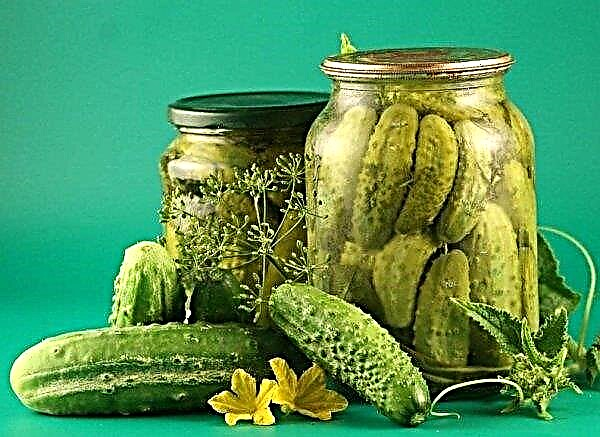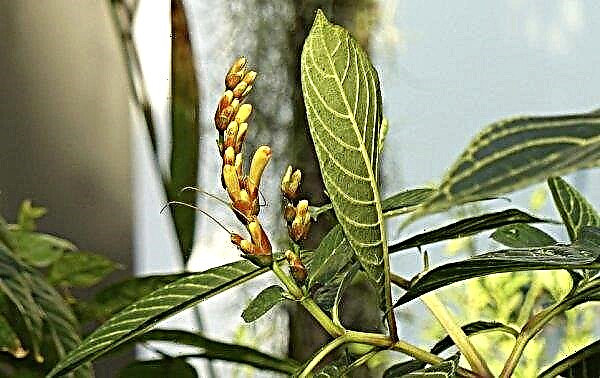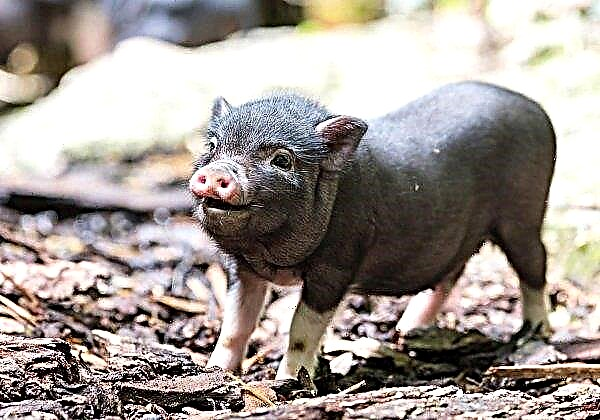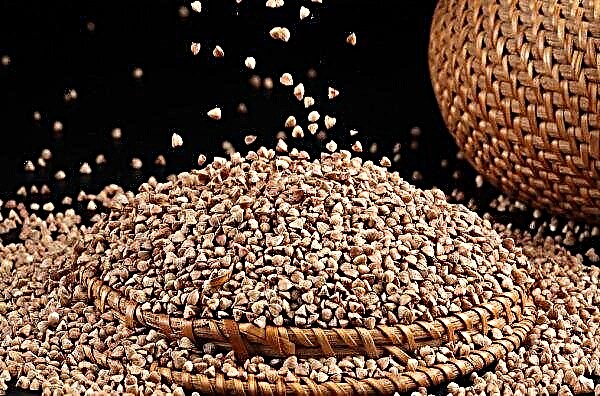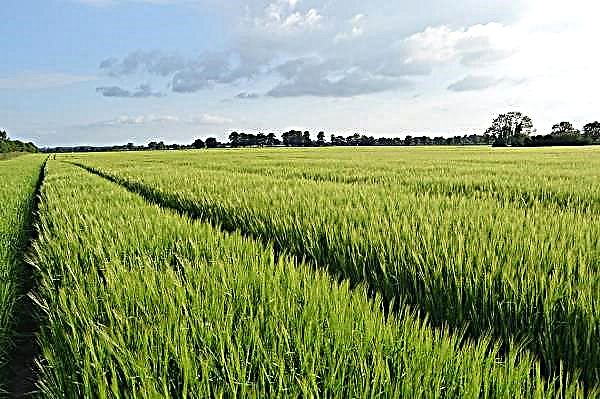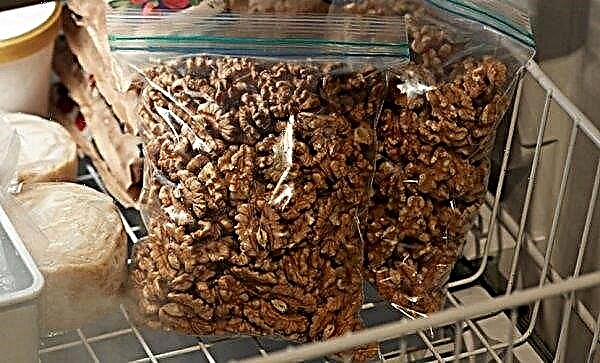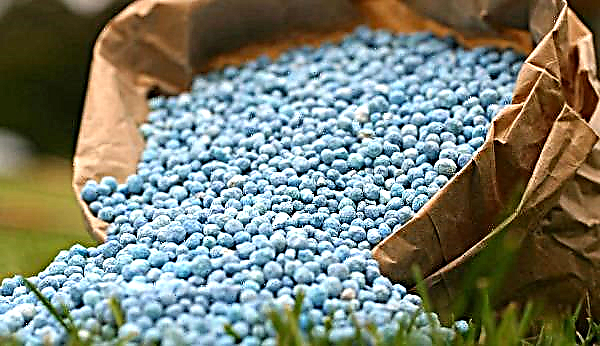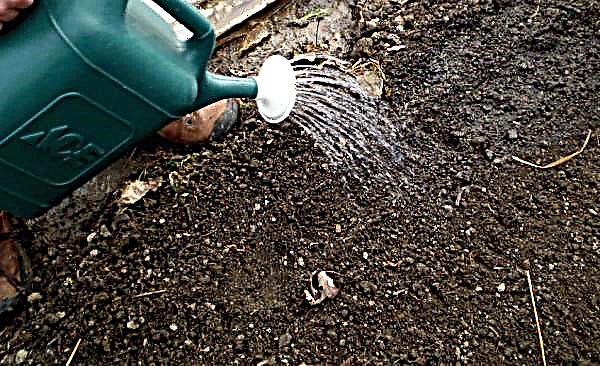To protect the chicken farm from helminthiasis is possible only with the help of timely prevention. Indeed, even strong immunity of the livestock, high-quality nutrition and keeping it in a closed space are not able to stand in the way of parasitic invasion. As a result, one can lose not only the income from the meat and egg productivity of the economy, but also the chickens themselves. How to find out about the presence of helminths in the body of wards of birds, what methods to prefer for their treatment and what to do in order to avoid illness - we will talk about all this later in the article.
Types of worms in chickens
Despite the fact that many owners of poultry yards do not pay enough attention to this issue, helminthiasis is a very common problem. Depending on the types of pathogens, parasites can be localized in various internal organs of the chicken, provoking a clear chain of external signs with their life activity. The table below will help you recognize them:
| Types of worms in chickens, the diseases they provoke and symptoms | ||
| Diseases | Pathogens | Location and symptoms |
| Capillariosis | Filamentous worms | They live in the intestines. In such a bird, growth retardation, lethargy and refusal of food are observed |
| Syngamosis | Nematodes syngamy | Localized in the respiratory organs. The wearer has severe exhaustion, poor appetite, and wheezing when breathing |
| Ascariasis | Roundworm | They prefer to settle in the digestive tract. Their active life provokes convulsive seizures in chickens, paralysis, decreased egg production and a complete rejection of drinking and food. |
| Cestodose | Tapeworms | They live in the gastrointestinal tract. It is expressed by poor appetite, general weakness and convulsive attacks. |
| Histomoniasis | Histomonads | They settle in the liver and cecum. By their vital functions they provoke an apathetic state, liquid droppings of yellow or green color. |
| Prostogonymosis | Flat fluke | It is localized in the cecum and rectum, as well as in the oviduct. It appears as a thin shell of eggs (or its complete absence), as well as a swollen stomach and a breakdown |
| Heterocidosis | Geteracis | They live in the cecum. It is manifested by general weakness, lack of appetite, diarrhea and refusal to eat. |
| Coccidiosis | Coccidia | They settle in the liver and provoke severe diarrhea, rapid weight loss and impaired egg production. |
| Amidostomosis | Amidostomy Nematodes | They are localized in the stomach. Their livelihoods are manifested by poor development of young animals, apathy and poor appetite of chickens. |
How does infection happen?
In veterinary medicine, helminthiasis is considered the most common disease, since it is impossible to protect domestic animals from it, even under the most comfortable conditions of detention.
The main factors that cause invasion in chickens, experts call:
- excessive dampness in the house (may occur due to strong insulation);
- dirty flooring in nests and chicken coop;
- stagnant low-quality drinking water;
- low quality feed;
- the neighborhood of rodents that are carriers of helminths;
- purchase of already infected chickens;
- contact with wild birds and animals;
- an abundance of earthworms and snails in the diet (such animals are carriers of parasites).
 Moreover, the source of infection can be the person himself, who, without even thinking, brings pathogens to the henhouse on the sole of his shoes.
Moreover, the source of infection can be the person himself, who, without even thinking, brings pathogens to the henhouse on the sole of his shoes.Once in the chicken body, the parasite begins to feed on the host's soft tissues. In this case, a gradual destruction of the beloved internal organ occurs. Worm products cause intoxication of the body and, as a result, various diseases. All this leaves its mark on the general condition of the feathered, as well as on its productivity.
Did you know? Worms, getting into the digestive tract, so as not to be digested, secrete anti-enzymes that protect them.
How to remove worms from chickens
If you notice at least one of the symptoms indicating invasion in your wards, proceed with treatment immediately. Otherwise, there are great risks of mortality of the entire livestock.
Antiparasitic drugs
For the treatment of worms in laying hens, there are many drugs. When choosing them, one should be guided by the symptoms of poultry, which will help determine the pathogen. According to experts, they have proven themselves well:
- Febtal - It is effective in the fight against roundworms, nematodes amidostomy, heterokisis and filamentous worms. The therapeutic course provides for a three-day intake of a medicinal solution. It is given in a dose of 0.45 g per 10 kg of bird weight. In large farms, they are limited to calculating the total weight of the chickens. Granules are simply dissolved in drinking water or mixed into wet food.
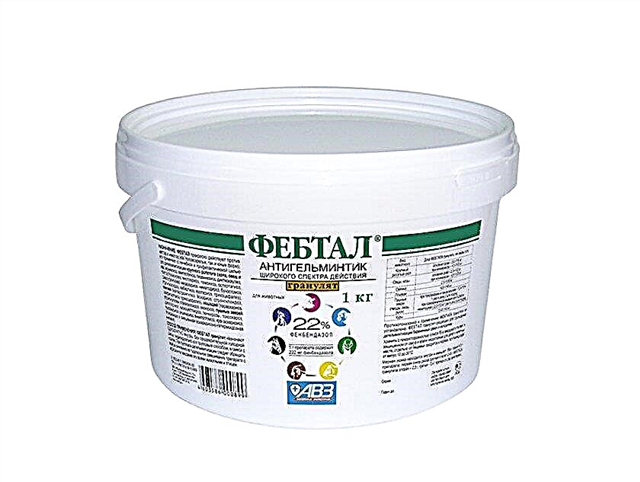
- "Phenothiazine" - It is recommended for blocking the life of roundworms and heterokisis, to which chickens are very vulnerable. The therapeutic as well as preventive courses are designed for a three-day medication. It is added to wet mixers in a ratio of 1:15.
- Avatek - It is popular with veterinarians, as it is a broad-spectrum drug. But the anthelmintic effect can be achieved only after a week's intake of medication. It is most often used on poultry farms, dissolving 500 g of the product in a ton of drinking water.
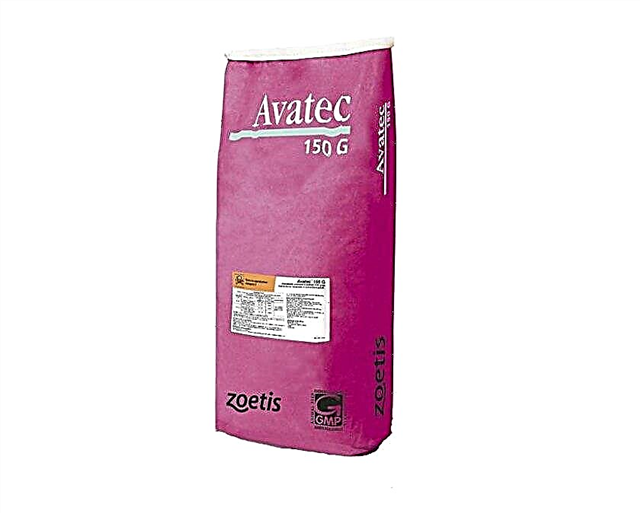
- Filixan - among veterinarians it is considered the safest drug with good performance in the fight against pathogens of cestodosis. Due to its low toxicity, it is prescribed as a preventive measure for young animals. Therapy, as well as prevention, is carried out by a three-day watering of feathered anthelmintic solution. If desired, the product can be added to the mixes, the main thing is that each ward swallows at least 0.3 g of the drug.
- Levamisole - is popular due to its wide spectrum of action. It is applied intramuscularly or orally for 3 days in a proportion of 2.5 ml per individual.

- "Piperazine" - It is intended for destruction of roundworm and nematodes of an amidostomy. The course of treatment is carried out in a single dose (1 tablet per chicken). After a month, the procedure is recommended to be repeated for preventive purposes.
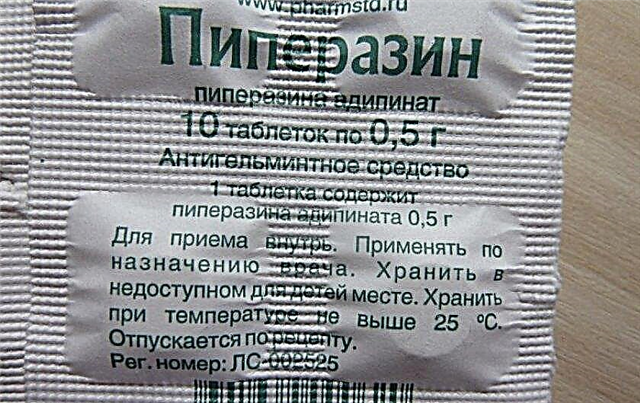
- Pirantel - effective against roundworms and nematode worms. Treatment consists of a single dose of the drug (1 tablet per kilogram of live weight). For prevention, it is recommended to repeat the course twice with a weekly interval.
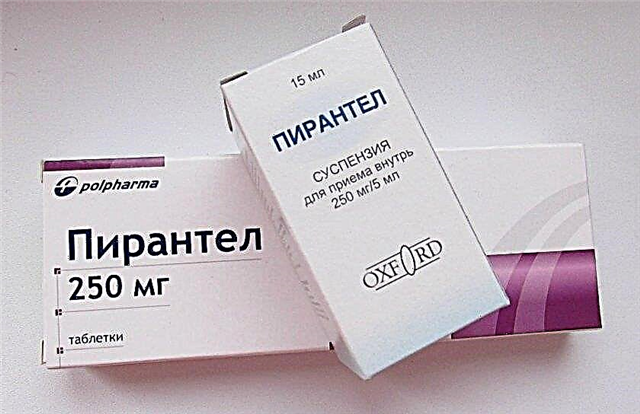
Did you know? Worms, depending on their quantity, can daily drink about 0.5 liters of blood from the owner.
Folk remedies
If, for some reason, medication does not suit your living creatures, you can try folk anthelmintic drugs. Of these, the following are noteworthy:
Experienced poultry farmers are advised to combine useful products in the preparation of feed. This will increase the chances of expelling the parasites.Important! Less often from helminthic infestations, hens that are kept in a closed enclosure suffer from the exclusion of access to wild birds for their food.
Can a person get infected
Having ascertained whether the chickens have worms, a reasonable question arises: can a person become infected with them. Unfortunately, many pathogens of helminthiasis have the property of being transmitted to humans through meat and egg products. This means that the owner of the poultry farm can become a carrier of the disease without even knowing it. To avoid invasion, experts advise:
To avoid invasion, experts advise:
- do not eat eggs with a thin shell or without it (in severe forms of the disease, instead of a shell, there may be a kind of film);
- boil chicken thoroughly (especially when it comes to purchased products);
- if a disease is detected, minimize the consumption of products from a sick bird and treat the entire livestock.
Important! Access to manure is strictly prohibited, because this is the main source of parasitic infestations. If your birds already had the opportunity to swarm in such a place, then they will need treatment without fail, without obvious symptoms of infection.
Prevention
It is not always possible to get rid of helminthiasis the first time, so it is much easier to prevent the disease than to treat it. In order to prevent veterinarians advise to carry out the following activities:
In order to prevent veterinarians advise to carry out the following activities:
- Clean the house regularly, followed by replacing the litter on the floor and in the nests.
- Wash hands thoroughly after each visit to the chicken coop.
- Remove bird droppings as necessary.
- Monitor the temperature and humidity in the room where the chickens live.
- Constantly monitor the state of health of feathered wards (apathy, refusal to eat, developmental delay, liquid droppings and a pale comb should be on guard).
- Exclude the possibility of contact of poultry with wild brethren.
- Eliminate small rodents (rats, mice, shrews) from the chicken coop.
- Regularly disinfect the house and water the wards with anthelmintic agents.
Helminthiasis in chickens is a serious and insidious disease that causes not only losses, but also a threat to the health of the whole farmer's family. That is why it is important to conduct regular examinations of chickens and observe hygiene standards in the house, as well as periodically solder birds with anthelmintic. Only in this way will you protect your birds and yourself from helminthic invasion.Important! Folk anthelmintic drugs are recommended to be used as preventive measures, and in case of an epidemic, emergency treatment with medications of the entire livestock is indicated.







